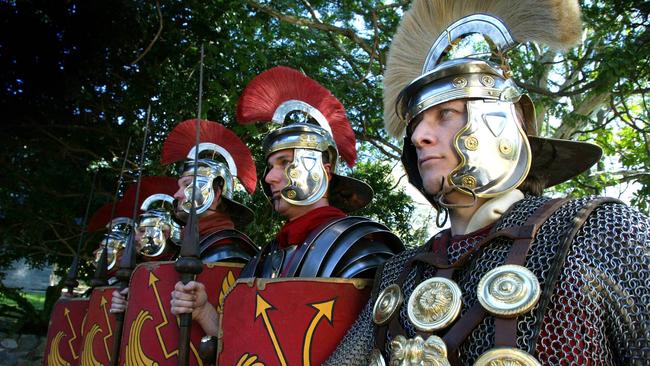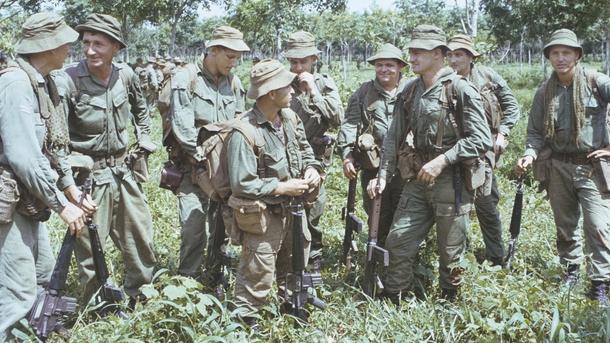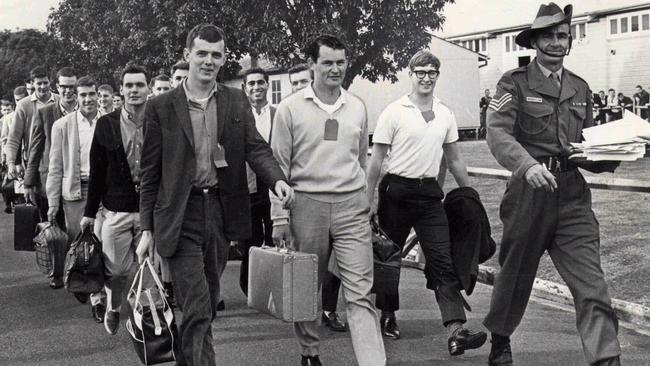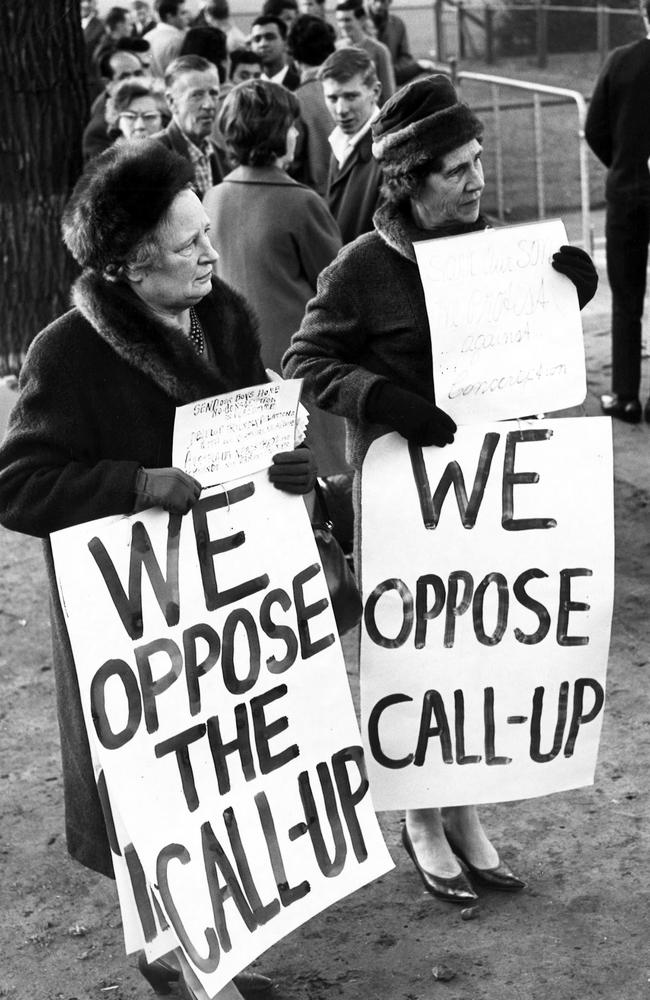Joe Hildebrand: Those who put lives on the line ask only to be quietly remembered
It is hard to measure the courage of those who chose to go – and those who were forced to go – to war, and many choose to forget. But we can never forget, and nor should we be allowed to, writes Joe Hildebrand.
Opinion
Don't miss out on the headlines from Opinion. Followed categories will be added to My News.
In the heat of an election campaign, in which all things are declared to be of vital importance, it is easy to forget the things that really are of vital importance.
Like literally vital. Like life.
It is just after 1am on Anzac Day as I write this – it’s fair to say, I probably won’t make it to a Dawn Service – but every day I think about just how incredibly lucky I am, how incredibly lucky we all are, at this time and in this country, not to be called to war.
There are many braver men and women than me who dream of battle or who are at least prepared to wage it when necessary. I can barely express how relieved and grateful I am that they are there.
But I think the rest of us too often forget just how much war and death has been such a constant part of human existence for our entire history. There have been perhaps only two exceptions.

The first was famously outlined by the great historian Edward Gibbon, who argued that the greatest period of tranquillity was within the Roman Empire during the second century AD, across which four unusually benign emperors managed to maintain an internal peace for 100 years.
Life may not have been so peaceful for the barbarians at the borders, nor their ancestors whom the Romans had killed and conquered, nor the slaves within the empire or the ordinary citizens for whom starvation, plague and inadequate dental plans were a constant source of complaint.

But at least people weren’t running around rampantly slaughtering each other, and that was what Gibbon meant.
Because that, in the grand sweep of human history, is highly unusual.
We might comfort ourselves to think that such woes are consigned to ancient history but, in fact, they run up right to our doorstep.
It is only since the end of World War II that Western nations have laid down their arms against each other, and it was only half a century ago that young men in the US and Australia were no longer forced to fight in Vietnam.

For those of us two generations shy of conscription, it is hard to measure the courage of those who chose to go and those who were forced to go against each other. And so I suspect we choose to forget, if we ever knew at all.
But we can never forget, and nor should we be allowed to. We can never, and must never, erase from our civic memory that there was a time in which young people were told you must fight and, if necessary, die for your country. That this is both your honour and your duty and that no correspondence will be entered into.
I honestly don’t know how I would or could have responded to such a call to arms. Frankly, I would have been more scared of the food than the bullets but that wouldn’t have made it any less terrifying.
And now, imagine such a situation today. Imagine Australia on the precipice of war, global or otherwise, and the demand that we offer up our lives in defence of our country.

Previous generations didn’t have the luxury of imagination. They just had to do it. And for centuries, and millennia before that, people had even less choice. They were soldiers of war or victims of war, inevitably and often repeatedly throughout their lifetimes, which were typically short.
From the Assyrians and the Babylonians to the Spartans and the Athenians to the Greeks and the Persians to the Romans and the Carthaginians to the Chinese and the Mongols to the Indonesians and the Timorese to the Spanish and the Americans to the British and the Indians to the Arabs and the Africans. It’s been a global historic clusterf--k.
And that’s before we even get to the Russians and the Saudis and the Somalis and the Israelis. And let’s not even talk about the Germans.
The most advanced and supposedly civilised cultures have all found indescribable ways to either destroy themselves or send their children marching to death.
No nation is immune, no people is innocent.
And yet we in the West sit in our unprecedented Long Peace and presume it will never happen to us, while screaming to each other about old foreign conflicts that should have been let go by their own combatants a long time ago.
Meanwhile, those who did put their lives on the line, to fight and die when called, ask only to be quietly remembered.
I wonder how many of those who scream loudest for blood will offer their silence for those who actually gave it.
Lest we forget.
Get The Real Story with Joe Hildebrand wherever you get your podcasts





